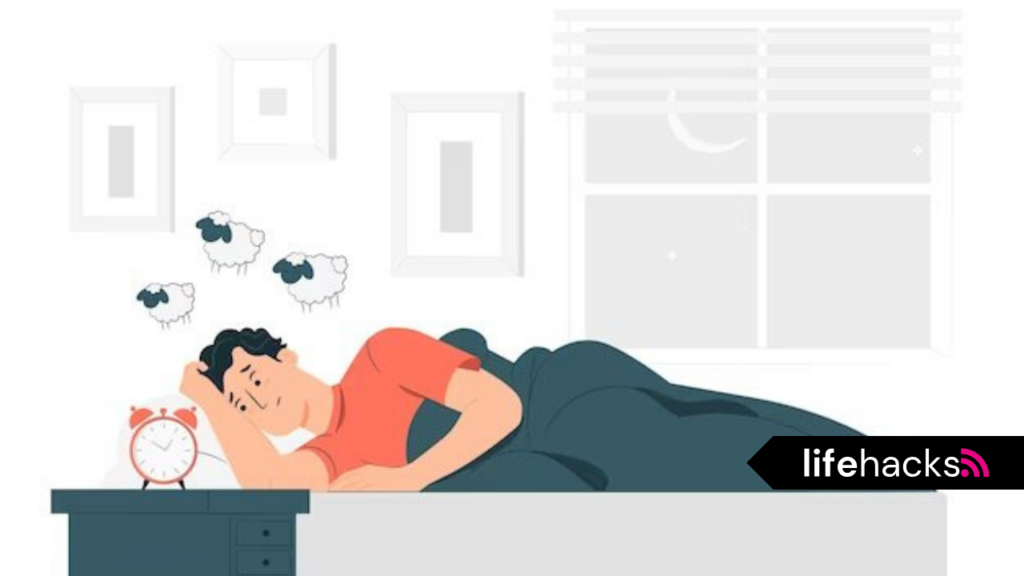New evidence suggests that poor sleep-characterized by non-restorative sleep, difficulty falling asleep, staying asleep, or both, and/or frequent awakenings, including early awakenings that are not refreshing-can age the brain by almost three years, hastening the onset of cognitive impairment in midlife. The research, published in the journal Neurology, highlights a significant link between sleep quality and brain health and recommends that individuals aim to establish healthy sleep patterns earlier in life.
Table of Contents
ToggleThe Findings: Sleep Quality and Brain Aging
The worst part is that researchers at the University of California, San Francisco, actually conducted one of the largest studies of this kind, following almost 600 people for 15 years, with an average age of 40. By using sleep questionnaires and conducting brain scans, they came to the conclusion that those with the poorest reported sleep had evidence of faster brain aging, equating to an extra 2.6 years in comparison with those who reported the best sleep. This finding remained significant even after adjusting for age, sex, hypertension, and diabetes.
According to the lead researcher, Dr. Kristine Yaffe, “These results underscore the importance of addressing sleep problems throughout one’s life, but especially early on, in efforts to promote brain health in later life. Sleep is an important contributor to overall cognitive function, and inadequate rest may contribute to the risk of developing Alzheimer’s disease and other neurodegenerative conditions.”

How Poor Sleep Impacts Brain Health
In the present study, all the subjects were divided into three groups based on their quality of sleep: low-, middle-, and high-risk groups. The low-risk group had very few problems with sleep, while the high-risk group comprised the subjects who reported more than three serious issues with sleeping, such as short length of sleep, difficulty initiating sleep, and excessive daytime sleepiness.
Brain scans revealed that, on average, the participants’ brains had aged considerably differently. The middle-risk group’s brains seemed 1.6 years older, and in those classified in the high-risk group, their brains had aged nearly three years. These results imply that not only does poor sleep quality play a role in short-term cognitive problems, but actually in accelerating overall brain aging.
The Role of Lifestyle and Sleep Hygiene
Poor sleep has been associated with numerous health complications other than cognitive decline, including cardiovascular disease, obesity, depression, and even stroke. Researchers now say it’s time to take sleep hygiene-a term that encompasses regularity in sleep schedule, maintenance of a sleep-conducive environment, and behavior modification that advances sleep-once-off.
Sleep disturbances that are treated by lifestyle modifications including regular exercise, avoiding caffeine and alcohol before bed, and practicing relaxation techniques may thus protect against long-term cognitive decline,” added Yaffe.

Preventive Measures: How to Improve Sleep Quality
The study’s findings serve as a wake-up call for people in their 40s and younger. According to the Centers for Disease Control and Prevention, one in three American adults reports not getting enough sleep, increasing their risk for cognitive and physical health problems.
| Tip | Description |
|---|---|
| Maintain a Consistent Sleep Schedule | Going to bed and waking up at the same time every day helps regulate your body's internal clock, promoting better sleep quality. |
| Create an Optimal Sleep Environment | Keep your bedroom dark, quiet, and cool. Consider using blackout curtains, earplugs, or a white noise machine if needed. |
| Unwind Before Bedtime | Establish a relaxing pre-sleep routine, such as reading or practicing mindfulness. Avoid electronic devices for at least an hour before bedtime, as blue light exposure can interfere with your sleep. |
| Limit Stimulants | Avoid caffeine, alcohol, and heavy meals late in the evening. These substances can disrupt your natural sleep cycle and make it difficult to fall asleep or stay asleep. |
Also Recommended Read : Simple way to ‘reverse’ cholesterol damage without needing drugs, experts say
Future Research Directions
Dr. Clémence Cavaillès, one of the authors, stressed that the research does not really prove poor sleep causes brain aging but fits with a growing body of evidence linking sleep disturbances to cognitive decline. “Our study used brain scans to gauge brain age, and we found that poor sleep may add nearly three years to a person’s brain age as early as middle age,” she said.
The symposium should, moreover, open up new avenues of improvement in sleep quality and, importantly, consider how sleep affects brain health at different life stages. Their work adds to an increasingly large body of evidence on the vital contribution of sleep to maintaining cognitive abilities and reducing the onset of diseases such as dementia.
A Wake-Up Call for Better Sleep
Sleep quality and brain health are interrelated, especially at a time when the connection between sleep quality and cognitive decline was never closer to being apparent. This new study serves as a grim reminder that if poor sleep continues, it may add three more years to the aging of your brain and accelerate cognitive decline. It is by taking precautions and giving sleep hygiene priority that one can safeguard not just their physical health but also their long-term mental well-being.
Further research into how sleep affects brain aging is being done by the academic community, and healthier sleep habits now could pay huge dividends later.